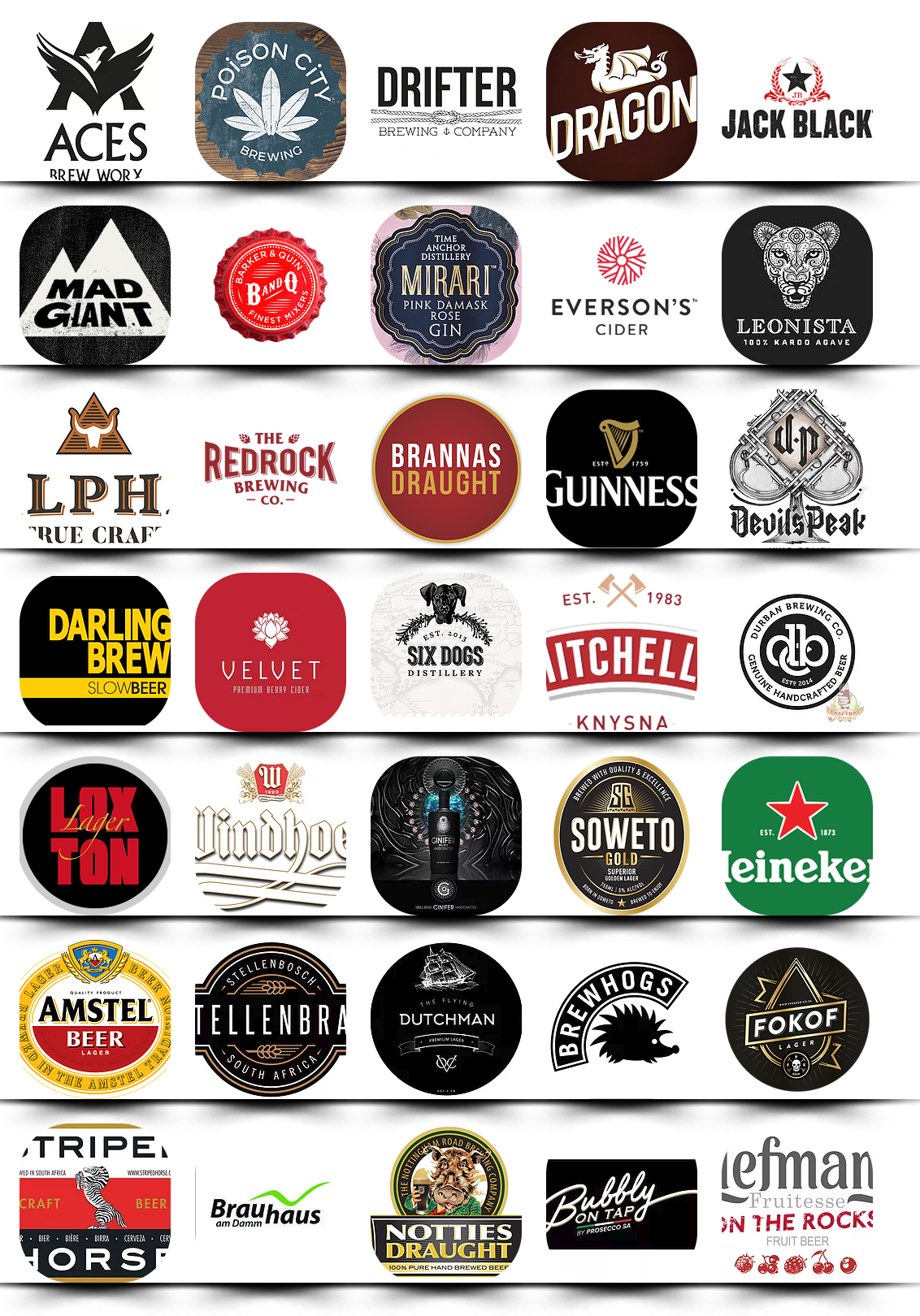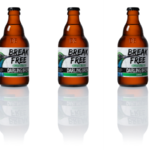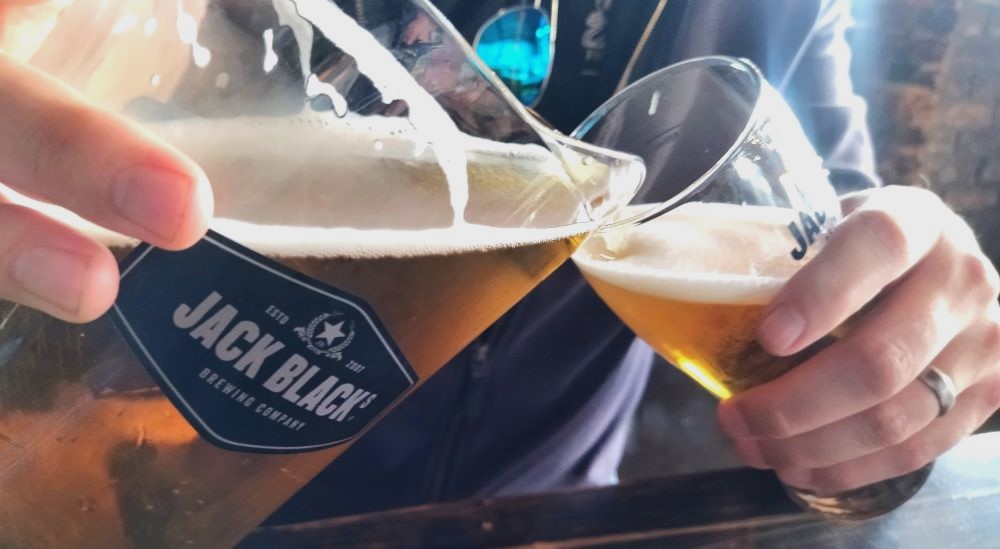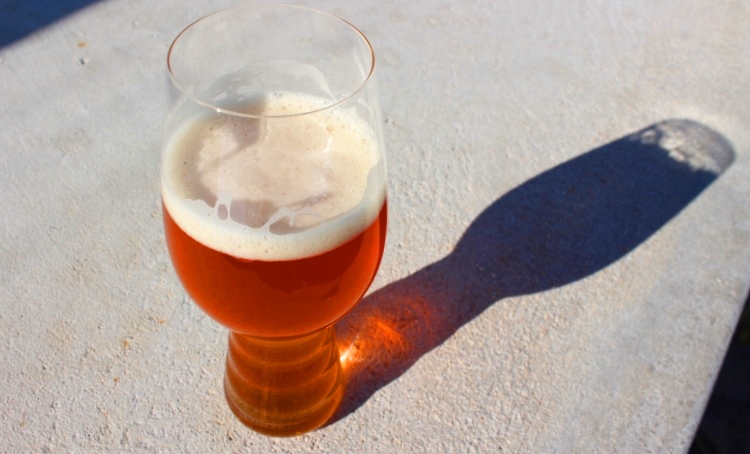Last week, in what started as a quiet deal and ended being shouted from the social media rooftops, Devil’s Peak – or in fact Signal Hill Products, the parent company to the Cape Town brewery – struck a deal with The Tap Room, buying some 700 installed draught taps around South Africa. The Tap Room was South Africa’s largest beer distributor, representing a wide range of macro and microbreweries including Darling, Drifter, Mad Giant, Poison City, Brauhaus am Damm, Sabie Brewery, Nottingham Road as well as Heineken and its various brands and partners, including Soweto Gold, Stellenbrau and Jack Black.
The beer community reacted instantly and passionately, kicking off with a Facebook post from Carl Nienaber from Drifter. He wrote that “the landscape of the South African craft beer scene changed radically for the worse when the country’s largest craft beer distributor sold all their draught dispensing equipment to the country’s largest ‘craft’ brewing group”, going on to suggests that Signal Hill are seeking “market domination.
Responses to the post included comments like “it’s a sad day for the consumer”, “can only be a bad thing” and a conversation among small brewers determined to educate consumers on “genuine craft vs macro craft”. Beerhouse founder Randolf Jorberg wrote his take on the Beerhouse blog.
It’s taken me a few days to speak to enough of the relevant parties and to find time to put all of this into what I hope will be a cohesive, if rather long, post. Here goes:
So what are the facts?
After courting several offers, including one from a major international brewing company, Dyllan and Lliam Roach of the Tap Room decided to sell their current assets in the trade to Signal Hill Products. This includes 200 installed units housing some 700 taps/lines.
Whose beers were on those lines before they were sold?
The Tap Room had a wide range of clients, including macro, micro and even a few nanobreweries. However, according to Devil’s Peak director Russell Boltman, fewer than half of the lines were being used to dispense beer. The majority were being used to dispense other products such as Brannas, prosecco and pre-mixed G&Ts. “There are only seven craft breweries that have more than five lines in total,” Russell said.
Why is it such a big deal?
People are worried that Signall Hill will remove competitors’ beers and replace them with their own products, which include beers from Devil’s Peak, Little Wolf, Alpha, St Francis, Mitchell’s and Fokof Lager, as well as international brands brewed locally – Mikkeller, Amundsen and Fierce plus Guinness, which is distributed by Signal Hill.
So are they going to remove competitors’ beer from the taps?
Well this is the question. Carl Nienaber certainly thinks so, writing on Facebook:
“Over the next few weeks we are likely to see dozens, if not hundreds of taps that had been pouring beers from small independent breweries being replaced with products from the basket of one company – the biggest, least independent craft brewery in South Africa.”
In a statement released by Devil’s Peak, Russell refuted the accusation:
“We are comfortable with the fact that we will never be, nor want to be, in a position where we dictate to the customer what beer goes on our taps. Yes, we will make sure that the customer is gaining value out of all the beers on the lines. We will offer up our views on the right product mix. If a beer is moving too slowly, which means the customer is not making money (and there is a chance that the beer is not going to taste as fresh as it should) then we will work with the customer to change that. In this, it is critical that the customer is happy, and that we are safeguarding the quality of the beer being poured through our draught equipment.”
I spoke to Russell about this statement and just to clarify, the customer in question is not you, dear consumer, it refers to the owner or manager of the venue where the taps are located. “The customer ultimately makes the call,” he told me, adding that individual bar owners know what sells in their bars and that they will work with the bars to come to an agreement on which products will run through the lines. “We generally work on wanting to have at least half of the lines being our own brands,” he continued. “There have been and will be changes as we do have a desire to be on the equipment and we are only on a very small percentage at the moment.”
So yes, some people’s products will be removed but we are not going to see an absolute monopoly from Devil’s Peak. It’s important to remember that some of the products that might be removed won’t be beer at all. “I imagine a lot of the reason stuff like prosecco and Branna’s is on tap is because beer isn’t selling in those venues. One of our goals will be getting them to appreciate beer and working with them to develop a beer offering that will work for them,” said Russell.
So it’s just a big fuss over nothing then?
Well no, not necessarily. I heard independently from four different breweries that they had already lost taps in the first couple of days after the takeover. I know that certain brewers were sitting down to chat with the Devil’s Peak directors to work on a way forward, but it is inevitable that some breweries will lose taps. . One of the problems is that reps tend to work on commission and they are the ones in the field, trying to sell more beer. For some breweries, all of their taps in the trade belonged to The Tap Room so obviously it is a great cause of concern should Signal Hill remove their beers. It could essentially spell the end of their business.
Can’t they just install their own taps?
It’s not quite that easy. For a start, installing taps is a pricey business – all told, you’re looking in the region of R20,000 per tap. But it’s not just the expense – it’s also difficult for brewers to convince the venues to take their beer and allow them to install taps. The other issue is incentivising, which happens a lot. Larger breweries are known to offer good deals, merchandise or even equipment in return for more taps or sometimes even for removing a competitor’s tap. Smaller breweries have neither the manpower nor the resources to compete with these sorts of tactics.
Wait, so don’t the venues own their own taps then?
Rarely. There are some bars and restaurants that own their own taps. Places like Beerhouse, Banana Jam and Capital Craft, for example, own their taps and can choose what they pour from them. Before the craft beer scene took off, taps were almost exclusively owned by the likes of SAB or Heineken and it is taking a long time for venues to catch up. In other countries with stronger craft beer cultures, a great number of bars and restaurants own their own taps – a model I would hope to see grow here in SA.
What difference does this make to me as a drinker?
Well, that kind of depends why you drink craft beer. If you’re purely about flavour (and there’s nothing wrong with that) then it will have little impact and could even be a positive. It’s no secret that some of the best beers in the country are coming out of Devil’s Peak, whether through their brands or their sister brands, and this will likely mean that you have greater access to some Amundsen IPA or Little Wolf Hoppy Wheat or Fokof Lager.
However, if you’re one of those craft drinkers whose main reason for switching from macro is because you want to support the little guy and want to spread the wealth, well, you should just be aware that while you’re undoubtedly being offering an excellent variety of beers, they might all be coming from the same brewery. You should also familiarise yourself with who owns what these days: Soweto Gold, Stellenbrau and an unknown portion of Jack Black belong to Heineken, Newlands Spring and Fransen Street are SAB products and RedRock is part owned (I’m not sure of the percentage – could even by wholly owned) by wine and spirits giant DGB.
So is Devil’s Peak really the devil?
Well that depends who you ask. I don’t believe that their goal is to close down other craft breweries. This is a brewery that has done great things for the South African beer scene, but it’s also a business, and a business that wants to grow. According to Russell Boltman, “we’re not trying to cannibalise other craft breweries – we are trying to grow our footprint and to convert drinkers of Stella, Castle Lite etc. to drinking craft. We are ultimately trying to take on new customers, not take customers away from others.” Of course, this means getting more of their beers into more venues and yes, there will be craft casualties along the way. Do I love the idea that one brewery suffers because of the acts of another? If they’re all producing great beer, then no, I really don’t.
Since finding out about this last Friday, I have changed my mind multiple times. On the one hand I simply do not believe that Devil’s Peak (or Signal Hill, whatever you want to call them) are interested in monopolizing the industry. The industry is simply too small. Best estimates are that the craft beer market accounts for about 1% of the overall beer market in South Africa. Why would you want to try to steal from that 1% when you could attempt to lure over some of the 99% of beer drinkers that are not drinking craft. Even if you managed to steal every single drinker in that 1%, you still wouldn’t get close to paying off an 8,000-litre Braukon brewhouse and a massive purpose-built facility. Beer is a volume product and to make a profit, you need to sell plenty of it, and so new avenues need to be explored.
And your final word on the subject?
I know that a lot of people think that I shill for Devil’s Peak. It’s true that I have known the directors for many years, and that I occasionally get drunk with the head brewer. But I also have long term relationships, if you will, with many other breweries in South Africa. The reason I tend to wax lyrical about DP and their associate brands is because, to put it bluntly, they produce fucking good beer. For me, that’s the key to craft. I absolutely love to support the small, local guy. But if the small, local guy is producing chlorophenolic, acetic or diacetyl-ridden beer, then I’ll order a pint of Castle instead. Devil’s Peak are local (well, so is Castle come to that) and while they are indeed no longer small, they were once. Craft beer is one of those industries where success is punished rather than celebrated and I would love to see that stop.
But just because you produce excellent beer, it never gives you the right to bully others in the industry. I hear a lot of rumours about reps for the larger craft breweries (not just DP) employing the kind of tactics that I associate with macro beer – muscling other brewers out with cut price beer and blatant bribes. And I think it sucks. It’s not something I like to see and I hope that Devil’s Peak come through on their promise to allow other brewers’ beers on their newly acquired lines. I’ll be watching carefully and hope that they behave like the big brother they never had when they started out, giving smaller breweries a helping hand and working together to grow craft beer’s piece of the South African pie. It saddened me a little that none of the brewers I spoke to about this were willing to go on the record for fear of losing taps if they were quoted here. I dearly hope that’s not what craft has come to.
Well then, there’s just one question left – what do you think?
Please join the conversation in the comments section below.











They can monopolize my mouth if they want. Great beers at affordable prices will help the overall category grow. Well written Lucy.
Hi there Lucy. Would be interesting if there was a follow up article (if already done then my apologies) on what the actual fall out from “tapgate” was in the end? Have DP dominated the taps as feared or have they played fair?
Hey Nic. This is a very good point and no, I didn’t write a follow up. Will do some research and see if there’s a good follow up tale to be told…
Personally I think worst case scenario is DP only puts their brands on the taps which are great products but will narrow the craft market considerably to an uneducated customer, saying that though if they are willing to allow “Guest” taps at the various outlets then it’s up to us as smaller breweries to push and educate customers on our craft beer to make sure we either get on or stay on the taps by creating the demand for our brand just as any other company would need to do to get there product to market. We as craft breweries should make sure our brand gets out on the shelf but in totality craft beer should grow in leaps and bounds as a whole. Creating a stronger industry for us all.
Thank you very much for this well written article Lucy you brought light into that issue from many different angles. I see the current development as smart and logical move from Signal Hill. I will keep on monitoring which beers will be on tap from their lines (as a consumer as well as a tiny supplier).
If I find a DP on tap it certainly is one of my preferred picks. They brew some excellent beers – no doubt!
So this whole #Tapgate (Maybe it should have been #TotalTapTakeOver?)
Let me play devils advocate for a second. I think this is good for craft beer in general.
So many people that are new to craft beer, go to a beer establishment and get a beer that is off. That person will never go back to craft beer. So if Devils peak can keep the rif raf off those lines, GOOD!
The illusion of choice is still good enough for most macro beer enthusiasts that are trying out craft beer for the first time. And DP and all their brands make good beer. If DP is your first craft beer, you might just come back for a second.
Now I know everyone is going to say what about the small brewers. If we look at Soul Barrel, all their beer is at location only and that is a good thing. It’s fresh and amazing. Same with Aegir and Tuk Tuk.
Let’s hope that good beer on tap, taps into the 99% SAB drinkers market and grows the craft market which will be benificial for everyone.
Well put – sounds like you should start your own blog! I think there is certainly potential for the trickle down – try some Signal Hill, get into craft, get out there and see what else there is.
This leaves me ambivalent, especially as a Jhb resident. I support craft beer for variety, local and non-mainstream. But we have to rely more on non-tap here so I tend to either buy bottles or go direct to breweries near us. Great article Lucy. I think we need more on who owns whom.
It’s always tricky to get people to say exactly who owns what percentage of which brewery, but I will try to keep ’em honest!
A well-structured (and I’m sure informed) piece, thanks Lucy. There are important titbits: “after courting several offers…” – the taps would have been sold anyway. Might as well be to the better/best of the local offers! Granted, I’m a DP supporter and drink beer because I thoroughly enjoy the likes of King Blockhouse, Mikkeller’s Capenhagen, and Mitchell’s Old Wobbly. Really good/great beers will survive (and thrive).
Thanks Johan – yep, good point. The taps were being sold regardless and if they had gone to certain large breweries you can guarantee that there wouldn’t even be any discussion on the matter of whether small brewers would retain their taps.
Hi Lucy, thanks for the article. You mention “you should also familiarize yourself with who owns what these days” – which is a good point. But don’t see a mention of who owns Devil’s Peak/Signal Hill?
It isn’t owned by another drinks company. It’s a combination of the original founders/directors and American investors.
What does it matter that it isn’t another drinks company? They are clearly as big a player if not a bigger player than all the other breweries mentioned in your article? I think that was the point Carl was making? These guys are spending millions acquiring other breweries, acquiring rights to other breweries, not to mention their own facilities. Nothing wrong with that. But they can’t keep pretending to be small. Also, who are these “American” investors?” Yum Brands? Pizza Hut? Bottom line, they make great beer. But let’s call a spade a spade.
The investors are guys that also invest in Pizza Hut. One of the many rumours is that Pizza Hut owns DP. I also heard that Colonel Sanders is taking over from JC as head brewer…
According to the CBASA, a craft brewery in South Africa is:
o Independent – No partial ownership by a major international brewer with over 5% market share in SA.
o Traditional – At least 80% of production is beer derived from malted cereal grains.
So I’m not sure how relevant it is to know who is backing what. Some tiny taprooms and smaller breweries might be 75% owned by a silent backer – is that also relevant? I think it becomes relevant if the owners have ulterior motives or when breweries are bought out by larger breweries, but I’m not sure why people consider DP to be less “independent” than other breweries in SA? Is it because they have investors? Or because they are successful? They are indeed one of the biggest craft breweries in SA, but does that make them less “craft”?
Thanks for the info, points taken…will be interesting to see how the rules of CBASA develop. Seems muddy. Just like the definition of “craft”!
It doesn’t make sense that a brewery owned in the majority by foreign investment, be it in the form of Pizza Hut, KFC, Venture Capital etc, is classified as “Craft” but a local brewery with a minority interest from a larger brewery or drinks company is not? Surely the volumes should come into play as well? Where are these rules published if you don’t mind my asking?
I’m not sure if CBASA’s website is up and running yet – they do have a Facebook page. I think it’s somewhat based on the American definition of craft which you can read here: https://www.craftbeer.com/breweries/what-is-a-craft-brewery. I think there becomes a conflict when a business is partly/mostly owned by a large brewery or similar…
Devil’s Peak have previously stated that the investors remain a minority partner while the original investors retain the majority…
DP make great consistent beers, which encourage people to take the plunge and try something new. Some of those will go on to try other styles. Anything that helps to grow that 1% has to be applauded and supported. The journey is bypasssing so many of the twists and turns of the U.K. and US market place. When one door closes another opens and it’s up to those small and new brewers to grab every chance. Taps are not going to be just handed out, you have to work on the relationship with time, effort and great beer.
I look forward to the next visit sampling DP beers and all those others and will actively search them out.
Great piece Lucy
PROST
They do however employ mass producer market tactics and actively go after small producer’s lines with total disregard for what it took to build that business. Simply offer the venue money and cheap beer to switch.
Yes, I have heard this about DP as well as numerous other breweries, large and not-so-large 🙁